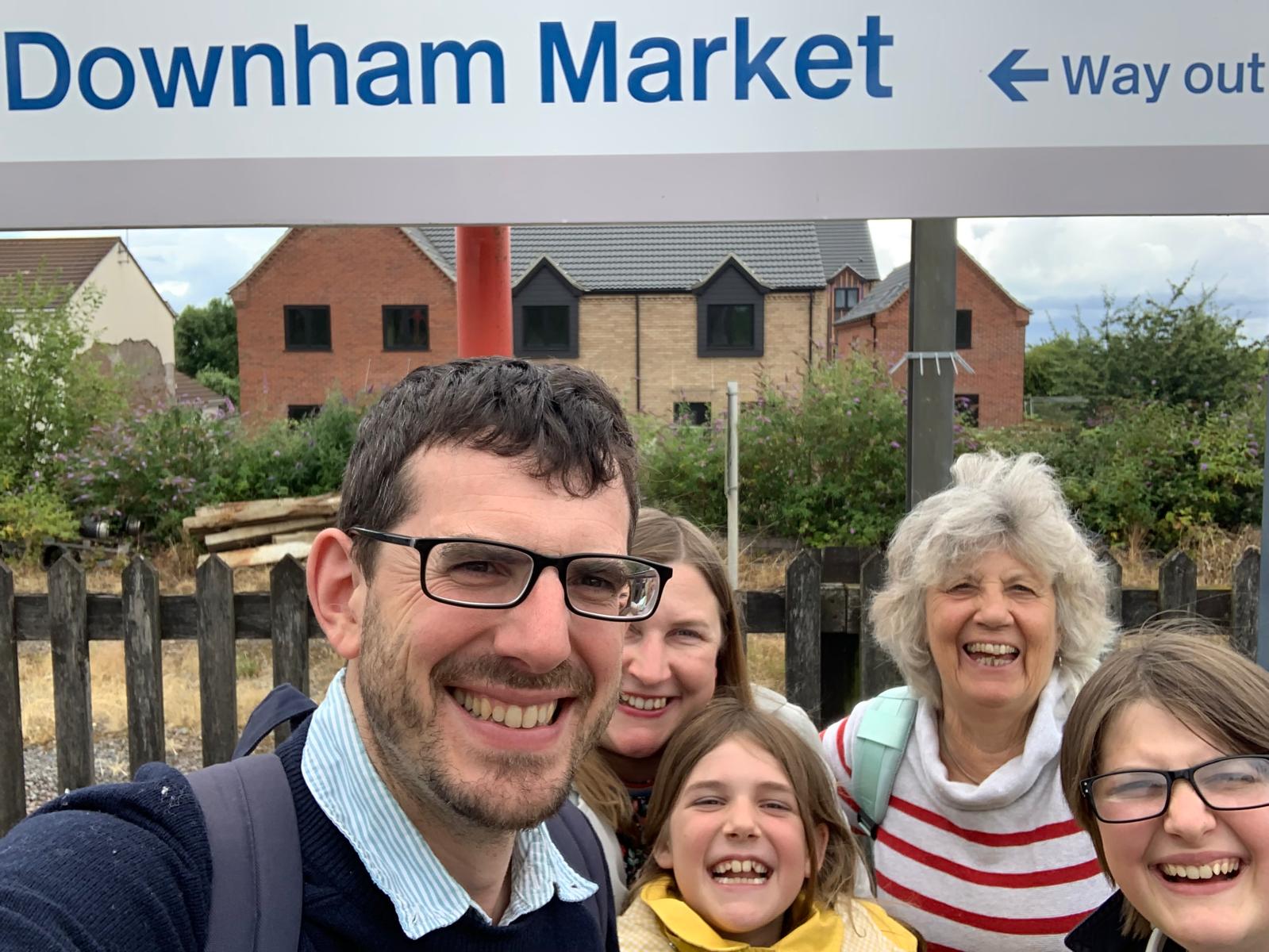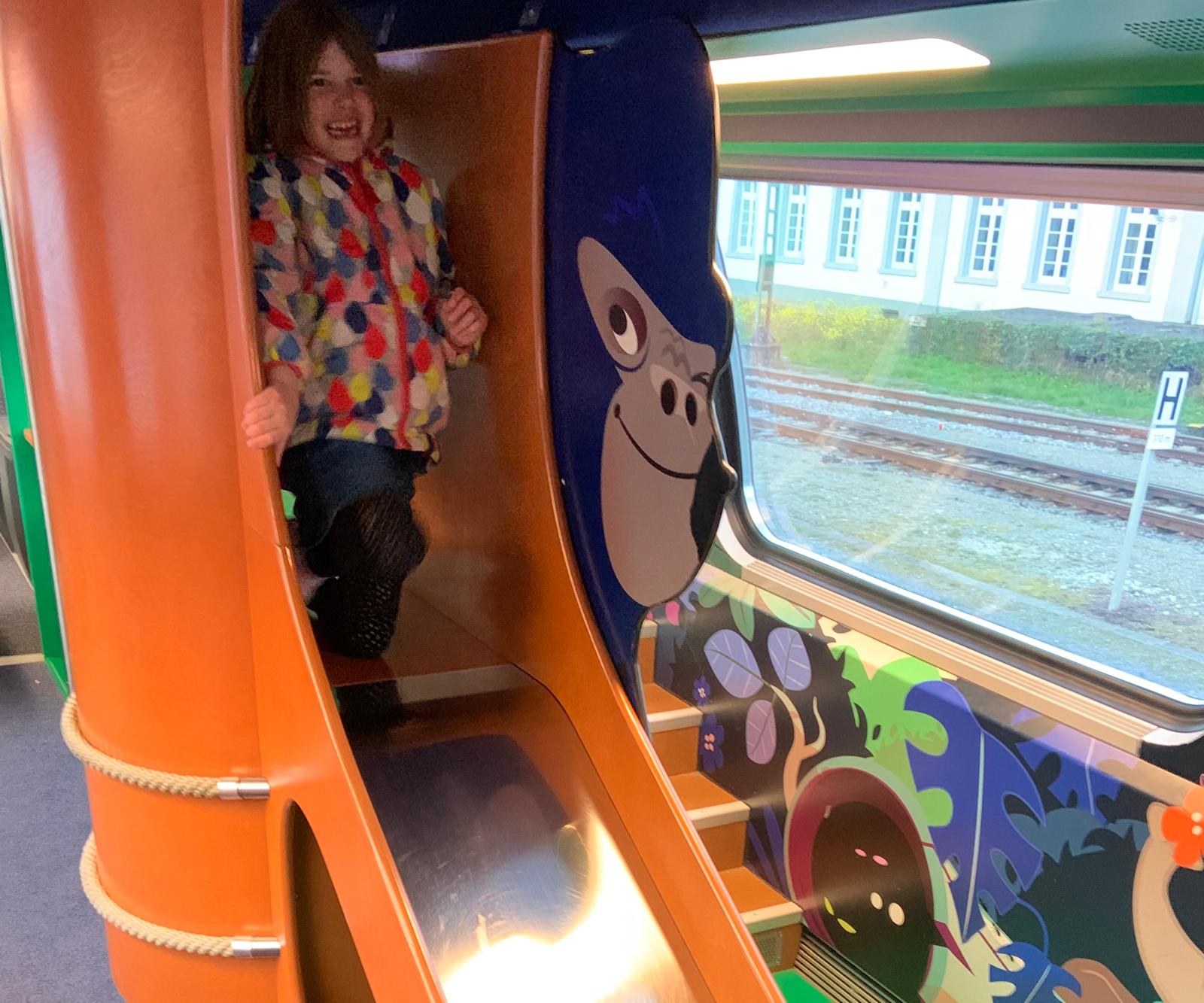10 things the UK government needs to do to make car-free living a mainstream choice for families
Exclusive: Improvements from free railcards for all to Uber for Teens are essential to tempt families from their cars

Helen Chandler and Thomas Ableman have two daughters and no car. “Thomas doesn’t have a driving licence, and I haven’t driven in the 22 years since I acquired mine,” says Helen. Thomas has spent two decades working across the transport industry – most recently as director of strategy for Transport for London. Together they run the CarefreeCar-free blog – and have chosen The Independent exclusively to launch their Car-Free Family Travel Manifesto.
Our car-free lives are a conscious choice. At first it was because we both hated driving and felt we had better things to spend our money on. More recently it is because not driving is something we can do to limit our carbon footprint and reduce the amount of air pollution our children (and everyone else) are forced to breathe.
Despite the lack of a car, we function as fairly responsible adults, holding down jobs, owning a home and parenting two children (and two cats).
We thrive as a car-free family and don’t believe our kids miss out on anything because of it. Probably the opposite, in fact: they are never short of exercise as we walk or cycle local journeys, and they haven’t been subjected to school runs or longer journeys breathing in harmful emissions which are four times higher inside a car than out of it. But that doesn’t mean it’s always easy.
If the new government is serious about cutting carbon emissions, improving health, and cutting childhood obesity then getting families to ditch their cars is essential. Here’s what needs to happen for car-free family living to become a mainstream choice.
1. Free family railcards. Not owning a car saves money overall, but there’s no doubt that train travel can feel expensive when you’re hit with a three-figure bill. A Family & Friends Railcard gives you two-thirds off children’s train tickets, and one-third off the fares of adults travelling with them.
But there’s a catch: it costs £30 for a year, and you need to know you’re going to use the trains a lot before you buy one. By making the card freely available, the rail industry will lose a few tens of millions in card fees – but surely benefit by many times more as families wake up to the value of rail travel.
2. Invest to give all major cities the same standard of public transport as London. One of the phrases we often hear when we say we don’t drive is ‘oh well, it’s ok for you, you live in London’. Yes, we do live in London, and one reason is the high standard of public transport.
But there is no reason, other than decades of under-investment, why cities around the UK – Bristol, Birmingham, Manchester, Liverpool, Leeds, Sheffield, Newcastle, Cardiff, Glasgow, Edinburgh, Belfast – shouldn’t have top-notch public transport networks of their own.
The UK is most unusual in the way public transport collapses outside the capital. Transport in Utrecht is as good as in Amsterdam, Antwerp as good as Brussels, Milan as good as Rome, Lyon as good as Paris. Even LA is becoming better than Washington DC.

3. Joined up transport. Looking for inspiration to our European neighbours again: let’s get those responsible for running our trains and our buses talking to one another. There’s nothing more frustrating than discovering that the hourly bus departs five minutes before the arrival of the hourly train. This never happens in, say, Austria.
If the Austrians can integrate transport modes so smoothly, why shouldn’t we? There’s a defeatism that says it’s hard. But if we start, it will become easier.
4. Family-friendly bike infrastructure. We are lucky enough to live in Waltham Forest where the council have created “Mini-Holland”: a borough-wide network of traffic-calmed streets and safe cycle lanes where we have felt totally comfortable cycling with our young daughters. Let’s make this the case everywhere.
5. Free cargo-bike hire from local councils. Most councils now try to encourage cloth nappy use by providing free starter kits or free collection and washing services. Let’s normalise something similar with cargo bikes so that families can do their weekly shop without a car.

6. Family waiting areas in stations. London King’s Cross station recently introduced a fantastic family lounge with games, soft-play and a breastfeeding area – let this be an example for all mainline stations.
7. Priority boarding for families at rail termini. In many respects, airlines are ahead of rail firms in making life easier for families, for example with automatic early boarding. Giving families with children 10 minutes of priority boarding time at terminus stations would transform parental stress levels.
8. Family zones on trains. We Interrailed around Switzerland when our youngest was two months old and our eldest had just turned six. The six-year-old was so excited to discover that on many Swiss trains there is a play area with a slide and climbing frame. I was equally thrilled to find sofa-style seating where I could breastfeed my baby in comfort, and because this was a designated ‘Family Zone’, we were totally free of the tuts and eye-rolls that are sometimes encountered when travelling with lively toddlers or grouchy babies.

9. Affordable left-luggage facilities in all intercity train stations. Left-luggage facilities that don’t cost the same as a night in a boutique hotel make life massively easier if you are travelling with lots of baby equipment, or would like to stop for a day trip en route somewhere else.
10. Uber for Teens. This one is for those of us with older kids who maybe go to extra-curricular activities or have friends living further afield. We’re much happier about our 15-year-old taking an Uber where her journey can be tracked, than with her walking home alone after dark. However, Uber’s small-print says that drivers don’t have to accept under-18s travelling without an adult. Uber for Teen accounts are now available in the US and Canada, and we need them here too.
Join our commenting forum
Join thought-provoking conversations, follow other Independent readers and see their replies
Comments
Bookmark popover
Removed from bookmarks